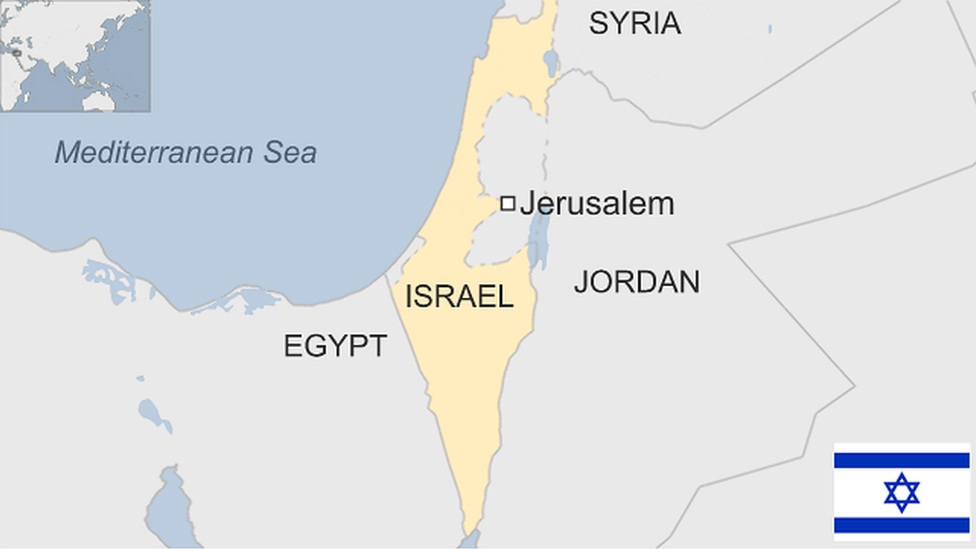Israel admits striking suspected Syrian nuclear reactor in 2007
- Published
Israeli military video footage showing air strike on suspected Syrian nuclear reactor in 2007
Israel has for the first time confirmed that it destroyed a suspected nuclear reactor being built in Syria in 2007.
The military said fighter jets bombed the al-Kibar facility in Deir al-Zour province, external, 450km (280 miles) north-east of Damascus, as it neared completion.
Syria's government has repeatedly denied that it was building a reactor.
Israeli Prime Minister Benjamin Netanyahu said Israel was determined to prevent its enemies from obtaining nuclear weapons.
"The Israeli government, the Israel Defense Forces and the Mossad [intelligence services] prevented Syria from developing nuclear capability. They are worthy of full praise for this," he wrote on Twitter.
"Israel's policy was and remains consistent - to prevent our enemies from arming themselves with nuclear weapons."
In 1981, in a surprise attack, Israeli jets destroyed a nuclear reactor being constructed south-east of Baghdad by the Iraqi government of Saddam Hussein.
What has the Israeli military revealed?
The Israel Defense Forces (IDF) said a "vast intelligence effort" began in late 2004, when Israeli agents obtained information that foreign experts - believed to be North Korean, external - were helping Syria with a nuclear project.
After the Israeli intelligence community located the building site and predicted that the nuclear reactor would turn operational by the end of 2007, the IDF made plans for an air strike dubbed "Operation Outside the Box".
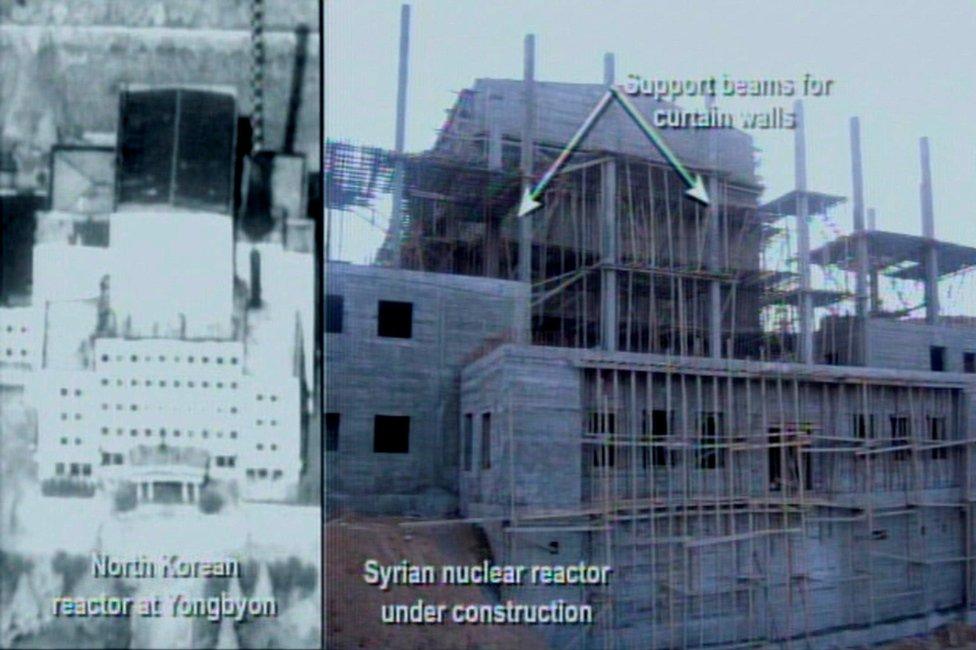
The US published photos in 2008 purportedly showing the reactor under construction
At 22:30 on 5 September 2007, F-16 and F-15 jets took off from two bases in southern Israel and flew towards Deir al-Zour, via the Mediterranean Sea and the Syrian-Turkish border.
The jets returned four hours later, after conducting a strike that totally disabled the reactor and caused irreversible damage, according to the IDF.
The IDF said it was decided not to confirm the strike or publish any information afterwards "in light of the highly sensitive security situation".

From the archive:

The Syrian military did not retaliate after the attack. President Bashar al-Assad said only that Israel had "bombed buildings and construction related to the military", which were "not used".
The International Atomic Energy Agency (IAEA) concluded in 2011 that the site was "very likely" to have been a nuclear reactor.
Syria had signed the Treaty on the Non-Proliferation of Nuclear Weapons (NPT) before the strike, which gave it the right to build a reactor to generate electricity. But it was also obliged to notify the IAEA of any plans to construct a nuclear facility.
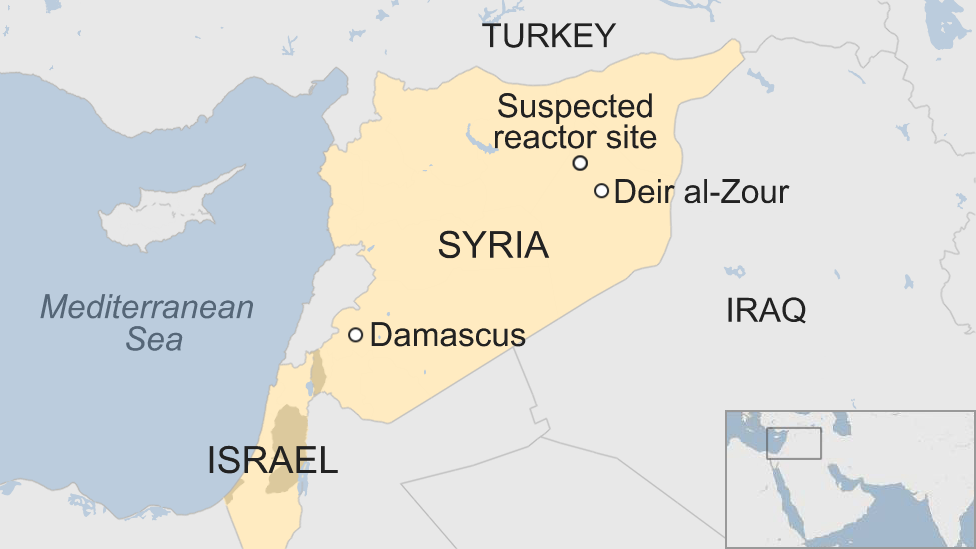
Israel, which is not a signatory to the NPT, is widely believed to have a nuclear arsenal - though it has neither confirmed nor denied this.
The IDF also noted that Islamic State (IS) militants fighting in Syria's civil war seized control of Deir al-Zour in 2014.
"One could only imagine how much havoc they could have wreaked with a nuclear facility in their hands," it said.
Why is Israel making this public now?
By Tom Bateman, BBC News, Jerusalem
It was never in any real doubt that Israel was behind the strike on the al-Kibar facility in the Syrian desert a decade ago. What matters about today's confirmation is its timing and the vivid way in which the Israeli military has chosen to publicise it.
The message being projected via the black-and-white pictures from the planes' cockpits is this: that Israel would be prepared to put Iranian nuclear facilities in the planes' crosshairs in the future.
Israel accuses Iran of maintaining nuclear ambitions - amounting to an existential threat - and believes its forces are trying to establish themselves permanently over its northern border in Syria - a claim Iran rejects.
The country may hope to add a sharper military edge to American diplomatic pressure on Europe to toughen its stance on the 2015 nuclear deal between Iran and six world powers - an agreement detested by Israel.
But it is a move that once again raises the stakes in the volatile atmosphere among regional powers engaged in Syria's seven-year long war.
Has Israel conducted strikes in Syria more recently?
Israel has carried out at least 100 clandestine air strikes in Syria since 2011.
Many of the raids are believed to have been aimed at preventing transfers of advanced weapons from Iran to Lebanon's Hezbollah movement, which fought a war with Israel in 2006.
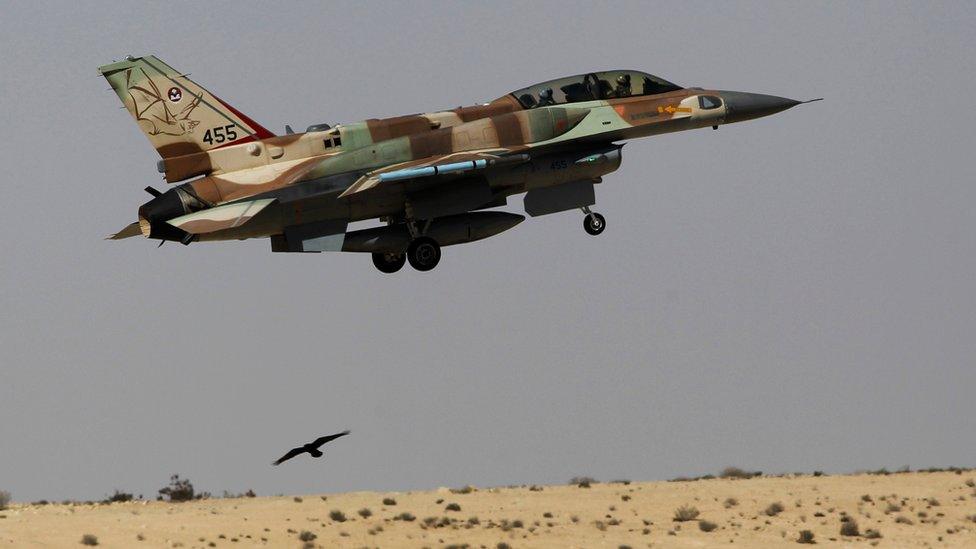
Israel has carried out at least 100 clandestine air strikes in Syria since the civil war began
Iran and Hezbollah are key allies of President Assad, and their forces have helped turned the tide of the civil war decisively in his favour.
Israeli aircraft are also said to have struck Syrian and Iranian military facilities inside Syria, but officials usually do not confirm such reports.
One exception was in February, when Israel announced that it had attacked eight Syrian and four Iranian targets.
The strikes came after Israel shot down an Iranian drone that had violated its airspace, and an Israeli F-16 crashed in Israel after being hit by Syrian anti-aircraft fire during a raid on the drone's launch site.
- Published10 February 2018
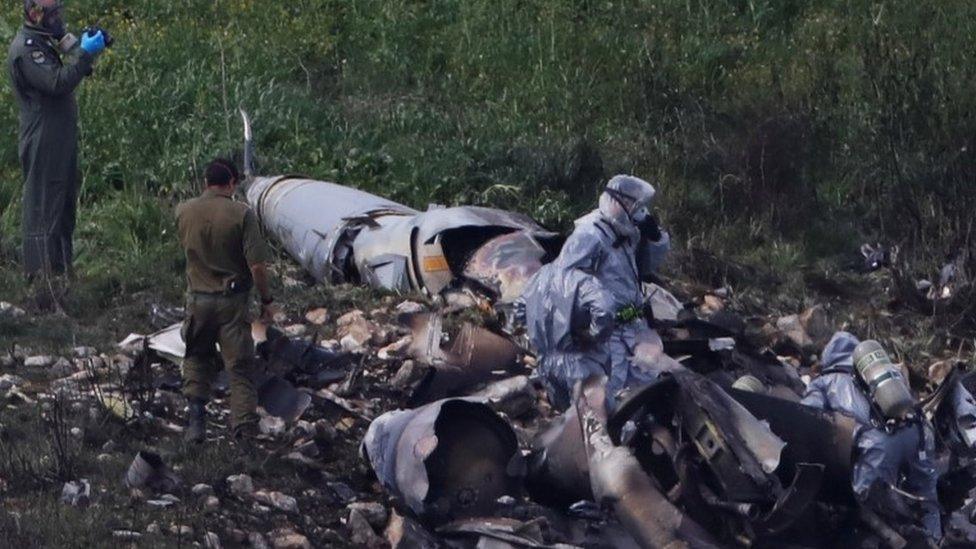
- Published10 February 2018
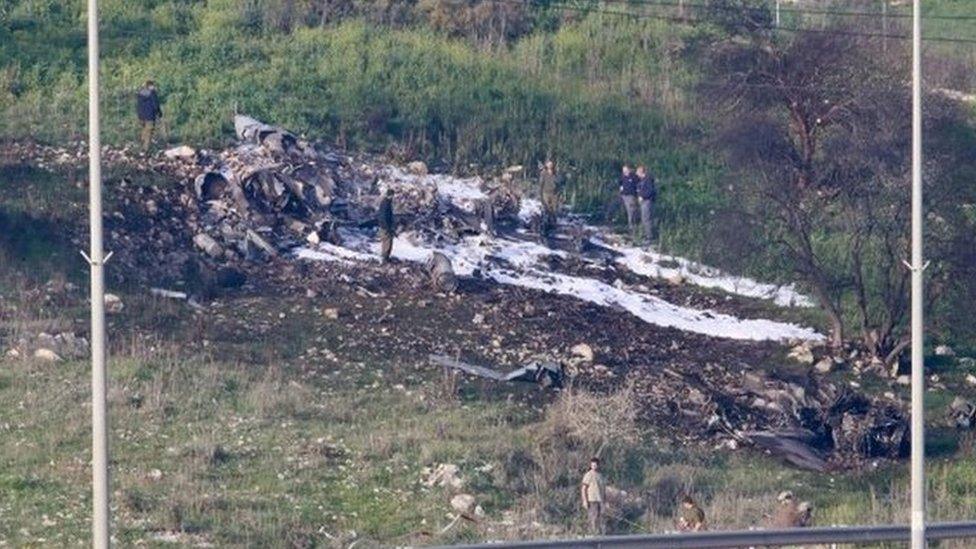
- Published7 February 2018
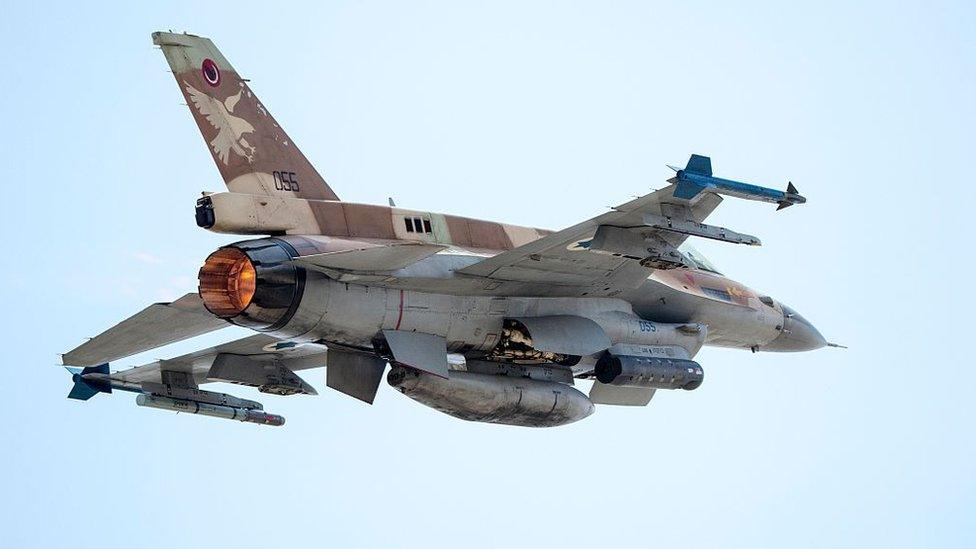
- Published2 May 2023

- Published13 October 2023
